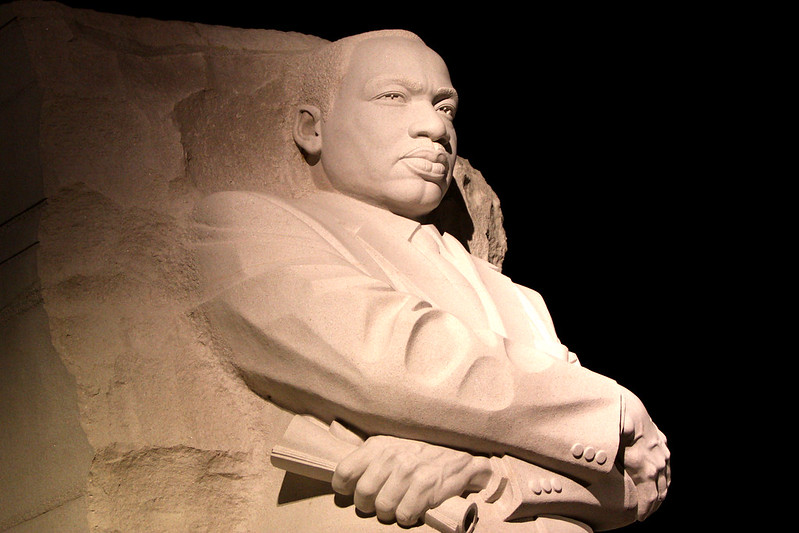Today is a day to honor the Reverend Dr. Martin Luther King Jr., who changed our country and the world with his actions and, of course, his words.
A lot of people today will be quoting from his “I Have A Dream” speech, where he looks forward to a world where “the sons of former slaves and the sons of former slave owners will be able to sit down together at the table of brotherhood.”
Or they may remember the famous line from his “Letter From Birmingham Jail,” declaring that “injustice anywhere is a threat to justice everywhere.”
Dr. King could stir hearts and provoke minds through his writing and his speeches like few others in history.
And so it’s amazing that his first speech as a public figure came together with almost no time to prepare it.
This was in December 1955, in Montgomery, Alabama, where Dr. King had been pastor at the Dexter Avenue Baptist Church for about a year.
He was only 26, though he’d already done a lot of living: as a kid, he ran a paper route so successfully as a teen that, at age 13, he was promoted to assistant manager of the delivery station.
In high school he gave an award-winning speech showing how racial discrimination went against America’s constitutional and religious traditions.
And he also skipped both the ninth and twelfth grades, so he entered college at age 15.
By 1955, he’d earned two bachelors degrees and a Ph.D.
He would later receive dozens of honorary college degrees, not to mention the Nobel Peace Prize he won in 1964, at age 35.
But, even for someone as accomplished as Martin Luther King, Jr., the situation in Montgomery would be challenging.
The city’s Black community was organizing a boycott of the city bus system, after the authorities had arrested Rosa Parks for refusing to give up her bus seat to a white man.
Perhaps because he was relatively new to town, the organizers chose Dr. King to be the president of the new Montgomery Improvement Association.
That was around six o’clock on the night of December 5.
They also asked that he speak at a public meeting about the boycott, which was to take place that evening at seven o’clock on the December 5.
In his autobiography, Dr. King writes that he headed home as quickly as he could to tell his wife, Coretta, what was happening.
He had twenty minutes to work on the speech, and he said he spent five of those minutes having a panic attack.
When the car came to bring him to the Holt Street Church, he had notes, but not a full set of prepared remarks.
But with five thousand people on hand, and the stakes high, he rose to the occasion, telling the crowd, and the world, that the Black community in Birmingham would stand up for themselves and for their rights.
“First and foremost,” he said, “we are American citizens and we are determined to apply our citizenship to the fullness of its meaning.”
They would do it through peaceful protest.
They would refuse to cooperate with an unjust system, but they would also refuse to treat others the way they had been treated, even with their lives and livelihoods at risk for speaking out.
He said: “We, the disinherited of this land, we who have been oppressed so long, are tired of going through the long night of captivity. And now we are reaching out for the daybreak of freedom and justice and equality.”
That speech would help build support for the Montgomery bus boycott, which eventually helped end segregation on the bus system in the city.
And it would make Dr. King a public figure, who would speak, and write, and through those speeches and writings, inspire, and challenge, and provoke, and change.
32 things you probably didn’t know about Martin Luther King Jr. (Insider)
When Martin Luther King, Jr. Became A Leader (The New Yorker)
(1955) Martin Luther King, Jr. “The Montgomery Bus Boycott” (BlackPast.org)
Photo of Martin Luther King Jr. Memorial in Washington DC by Gage Skidmore via Flickr/Creative Commons

